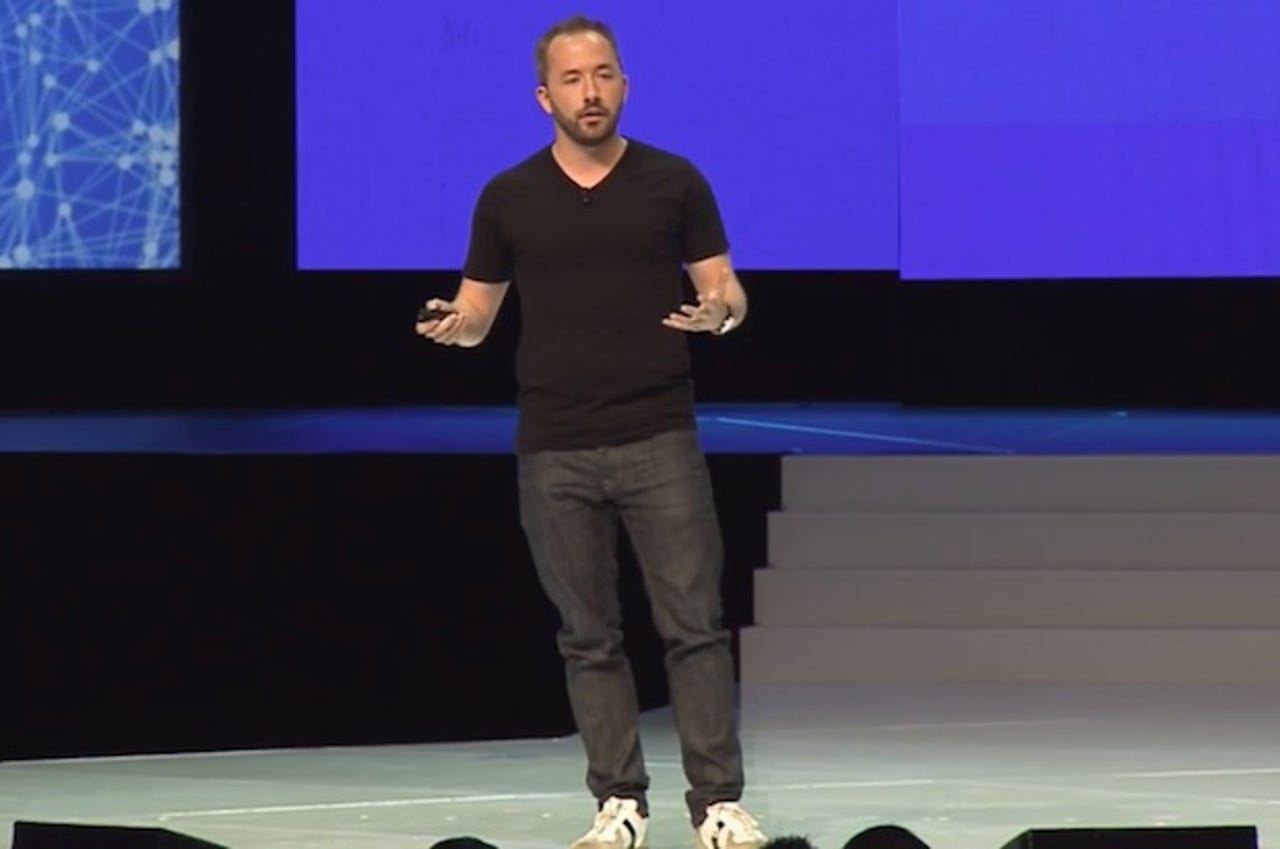Dropbox trades barbs with Box while defending enterprise approach


SAN FRANCISCO---Dropbox wants investors and analysts to know how serious it is about signing on more corporate customers, insisting its the consumer platform that has really brought on businesses organically.
Dropbox has signed on more 400 million members worldwide, which includes usage at eight million businesses, according to CEO and co-founder Drew Houston.
Dropbox for Business, a division specifically pitched toward workplace clientele, has attracted approximately 150,000 business users to date, prompting Houston to peg 2015 as a tipping point for the private organization while inking deals with bigger corporations such as Expedia, Hearst Corporations, Hyatt and News Corp.
At the San Francisco-based company's Dropbox Open customer summit on Wednesday, Houston defended against criticism that Dropbox only caters to consumers, countering that consumers are the ones who have brought the cloud-based data sharing and storage service into those businesses on their own volition.
Essentially, Dropbox appears to be highlighting and even touting reliance on some tried-and-true growth techniques, such word-of-mouth and brand loyalty.
As Dropbox outlines its sharpened business strategy this week, the news is already prompting responses from some of its competitors.
Among them was Box, a comparable cloud platform that has been geared toward the enterprise for roughly a decade.
"Dropbox has tried to play catch up to our enterprise product strategy for years but serving millions of free consumer users is profoundly different from powering the world's largest enterprises," wrote Box CEO and co-founder Aaron Levie in a statement provided to ZDNet before Dropbox Open on Wednesday.
Levie further leaned on Box's tech industry alliances forged with both old guard brands such as IBM and Apple to similarly new but growing players such as Okta and Splunk.
Houston traded plenty of barbs back toward Box early in his keynote, quipping "we have a competitor out there that says we're 'Dropbox for the enterprise,'" deriding its rival for having to "do it the old way" and continue to pitch and sell products via traditional sales teams.
Furthermore, Houston boasted Dropbox added 50,000 paying business customers in the last 10 months alone, asserting Box has only added that amount of customers in its entire lifetime.
Dropbox's vice president of product Todd Jackson added there have been 2.8 billion connections on the platform, including an average of 100,000 new shared folders and links every hour these days.
To nudge those numbers even higher, the Dropbox for Business API is being updated for implementing shared folders and shared links in third-party apps.
Building off the initial foundation of what Houston described as the "magic folder," Jackson proceeded to outline more additions upgrades to Dropbox, starting with some basic fine-tuning for badges, previews and commenting.
After a few weeks in secretive, invite-only mode, Dropbox also removed the shroud from Paper, which Jackson described as a "brand new way for working together but ties back to existing tools."
Although details are still at a minimum, Paper initially looks like Dropbox's answer to Box Notes, Google Docs, Evernote and even communications tool Slack. (It does not, however, resemble or look to counter Facebook's identically-named Paper app, which targeted digital news readers like Flipboard and LinkedIn-owned Pulse.)
Jackson said a number of organizations already testing the document viewer app has come to serve as a central digital hub for file access and collaboration.
Paper will be available to all Dropbox users within the next year, but Dropbox for Business users can either apply for invites on their own or speak with respective IT managers.
Dropbox is also building upon its Business offering with the debut of Dropbox Enterprise, promising additional capabilities designed to scale, such as domain management, visual insights into how people are collaborating on the platform, support for integration with existing IT systems and ongoing user support.
Houston described Dropbox Enterprise as "our most powerful set of tools for our largest customers, ever."
Despite the earlier tirade against its cloud opponent, Dropbox appears to be picking up on something from Box, essentially play catch up in enterprise mobile management (EMM) with a new EMM-enabled app scheduled to roll out in 2016.
That app includes a tie-in with VMware's EMM service Airwatch, which already has had a partnership with Box since 2014.